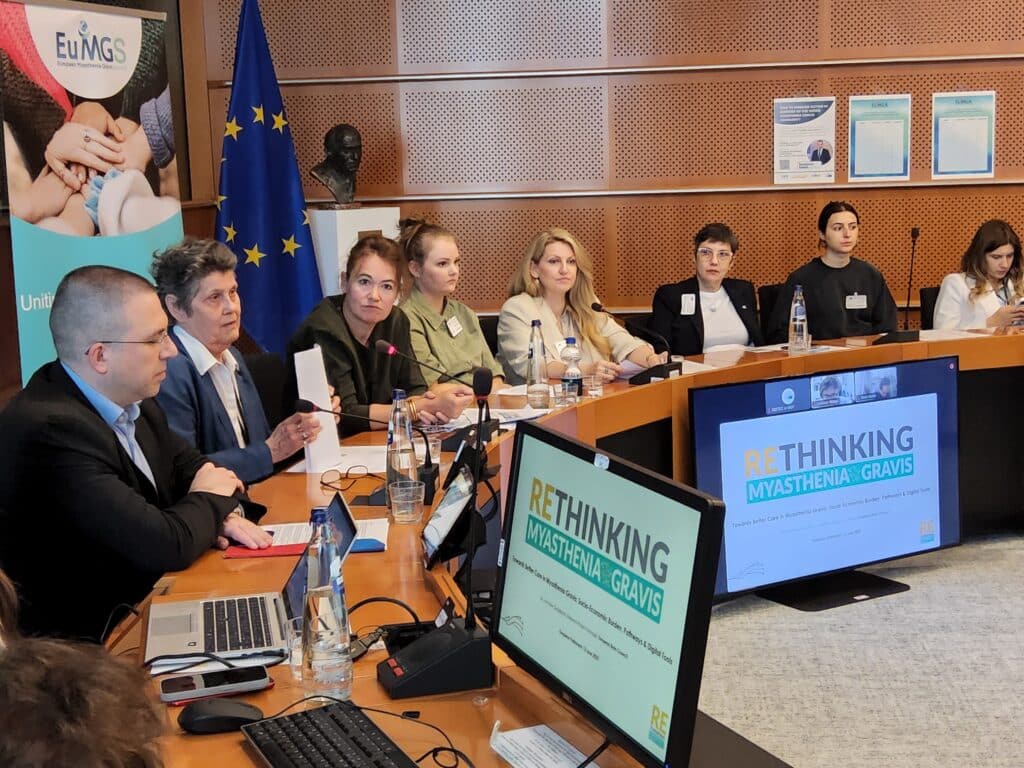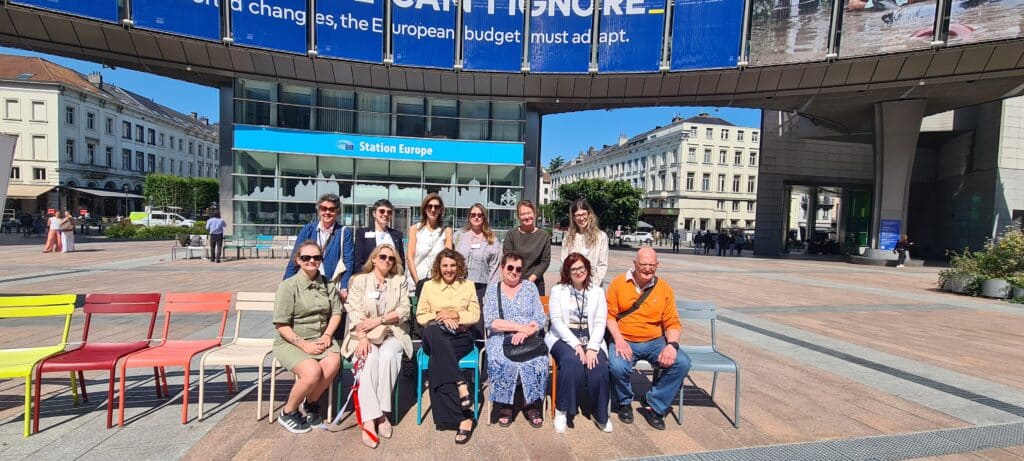Brussels, 12 June 2025 – European Parliament

The European Myasthenia Gravis Association (EuMGA), in collaboration with MEP Tomislav Sokol (EPP, Croatia), hosted a high-level event at the European Parliament, to spotlight Myasthenia Gravis (MG) and broader rare disease challenges across the EU. The event brought together patients, healthcare professionals, policymakers, and advocates to raise awareness and catalyze meaningful policy action for people affected by MG.
The session was opened by Ms. Lut Allard, President of EuMGA, followed by two powerful patient testimonials that underscored the urgent need for systemic change.
Ms. Naomi Wynen (Belgium), a passionate young advocate, shared her harrowing journey toward diagnosis, marked by years of debilitating symptoms that went unrecognized. Her MG was only diagnosed when her condition deteriorated so severely that she was intubated and fell into a coma due to respiratory muscle failure—a condition known as a myasthenic crisis. “For me,” Naomi said, “everything could have been different if someone had believed me sooner.”
The second testimony, delivered by Ms. Sylwia Łukomska (Poland), President of Myasthenia Gravis – Face to Face, recounted the tragic story of a young woman in Poland who died after being repeatedly dismissed in emergency care settings. Medical staff, unfamiliar with MG, misjudged her condition as psychological distress. She passed away before she could be intubated or properly treated.
As Ms. Łukomska poignantly stated:
“She died, alone, without receiving the emergency intervention that could have saved her life.
And this is not only a Polish tragedy. It is a European failure.
Because similar stories happen across our Member States.
Emergency professionals are often unprepared to recognize and manage rare diseases like myasthenia gravis.
Protocols are inconsistent. Awareness remains dangerously low.
And time—the most precious resource in such crises—is lost.”
MEP Tomislav Sokol, co-host of the event, spoke about the division of responsibilities between national and EU-level health policies. He emphasized the need for coordinated action and discussed proposals aimed at harmonizing care and access to treatment for rare disease patients across Europe.
The need for a comprehensive and coordinated EU Action Plan for Rare Diseases is clear.
The event also featured several expert contributions:
- Ms. Vinciane Quoidbach, Public Health and Policy Research Project Manager at the European Brain Council, presented the “Rethinking MG” project, led by the European Brain Council in collaboration with Scuola Superiore Sant’Anna and involving also EuMGA as a key partner.
- Dr. Lorenzo Maggi, Consultant Neurologist at the Neuromuscular and Neuroimmunology Unit of the IRCCS Neurological Institute Carlo Besta, and Coordinator at the European Reference Network for Neuromuscular Diseases (ERN-NMD), highlighted the role of ERNs and patient engagement, particularly through the MG Working Group.
- Ms. Hana Horka, Policy Officer at the European Commission DG SANTE.B3 (Health Networks), gave an overview of EU actions supporting rare diseases. She discussed initiatives such as the European Reference Networks (ERNs), the European Health Data Space, Orphanet, the EU Platform for Rare Disease Registries, the Medical Device Regulation, and the proposed Critical Medicines Act. She also introduced the Joint Action JARDIN.
The event concluded with a Q&A session, followed by the launch of EuMGA’s Call to Action, which participants were invited to sign on site. The Call to Action remains open for digital signatures at the following link:


Share



